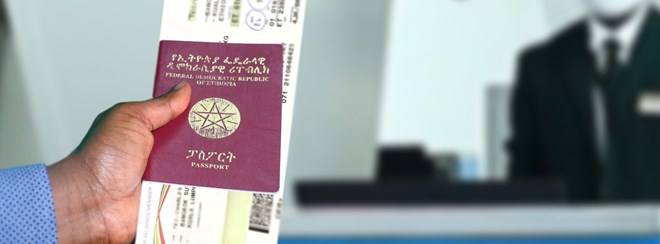
Thursday May 2, 2024

London (HOL) — The European Union, citing Ethiopia's lack of cooperation in repatriating citizens residing illegally in EU countries, announced on Monday a tightening of visa requirements for Ethiopian nationals. The decision will also affect the Somali community holding Ethiopian passports as they navigate new travel restrictions.
The Somali community in Ethiopia is one of the largest ethnic groups in the country, making up about 6% of the total population.
Under the new regulations, the EU has temporarily suspended specific provisions of the law governing the issuance of visas to Ethiopians. These changes prohibit EU member states from waiving specific paperwork requirements and issuing multiple-entry visas. Furthermore, Ethiopian diplomats and officials will now be required to pay for their travel visas, marking a significant shift in policy.
The processing time for Ethiopian visas will now extend from 15 to 45 days, a measure the European Commission describes as necessary to pressure Ethiopia into better cooperation on deportation matters. The restriction follows a review that revealed that only about one-third of individuals ordered to leave the EU comply, with the rest remaining illegal.
The backdrop to these visa restrictions includes ongoing challenges within Ethiopia, which is grappling with the aftermath of a two-year conflict in the northern Tigray region that ended in November 2022. The conflict left most of Tigray's 6 million people dependent on international aid, exacerbating migration conditions. Ethiopia is a significant origin and transit country for migrants from the Horn of Africa, including a substantial number from Eritrea and Somalia, aiming for Europe or other parts of North Africa.
In response to the EU's measures, the Ethiopian government expressed its dismay, emphasizing ongoing efforts to manage the return of its nationals in a "dignified, orderly, and safe manner." The government criticized the EU's decision for not considering the complex processes involved in identifying nationals and managing their return. They urged the EU to reconsider its position and highlighted their previous cooperation.
Last year saw approximately 380,000 migrants enter the EU illegally, representing the highest number since 2016. This figure underscores the broader migration challenges facing Europe, including the risky and often fatal journey many undertake across the Mediterranean Sea, organized by criminal gangs.
As the situation develops, the EU's stance on visa restrictions remains a pivotal area of contention, influencing not only diplomatic relations but also the lives of thousands of migrants and the broader humanitarian landscape in the Horn of Africa.